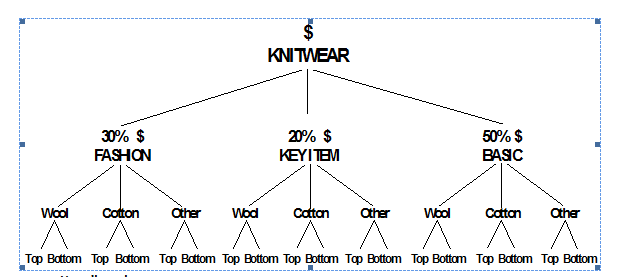ShopTorque
Thoughts, ideas, tips and musings as I work alongside small business owners helping them love their businesses back to life!
Debra
Shopping should be a pleasure for everyone involved - customers, staff and business owners - never a chore. I spend my time working with retail business owners - helping them love their businesses back to life! This blog is my thoughts, ideas, tips and musings on what I find...

Attention: RETAILERS
We're giving away SIX copies of Jingle Bells Christmas Sells!
Just scroll down to the bottom of the page and fill in your details in the Keep In Touch box - bottom right hand corner. Winners notified on Monday!
Christmas never seems to be far away when you work in retail. No sooner has last year's festivities been wrapped up and the Christmas Sale is done and dusted, than thoughts start turning to the next round of Christmas fun. But, in the flurry of activity, crucial steps can often be overlooked as pressure mounts and retailers grow accustomed to the monotony of year in, year out in-store preparations.
It is one of the most important trading periods of the retail year. The impact it has on sales will vary with each retail sector but whichever sector you belong to, it is critical that you maximise the sales potential of this peak festive season.

Consider the following factors when planning your Christmas Visual Merchandising strategy:
Product: Your product needs to be your shop's greatest hero. To create a significant point of difference, plan your product range carefully to ensure you have considered high volume merchandise and the products creating stories. Plan the placement of these product ranges so there is a balance of volume and value as well as eye-catching highlight displays as your hero.
Creative planning and capitalising on the prime season: The festive trading period can constitute up to 40% of a retailer's annual trade. It is not only important from a financial perspective but it is also the most crucial time to cement new relationships with customers. To maximise this opportunity retailers need to use creativity to their strategy to build a point of difference to competitors.

I was very much reminded of this recently when I saw a couple of relatively 'new' retailers succumbing to the demands of suppliers rather than their customers.
Buyers must be buying agents for their customers rather than selling agents for their suppliers.
Every buying decision should start with the customer in mind, and buyers must strive to understand the needs and expectations of those customers so that they may be translated into a sellable and profitable product range.
...A Family Tree is a useful system used to capture important information for your business.
A Family Tree is a more detailed extension of the product classifications used in the range assortment plan.
The most useful aspect of this facility is to capture accurate information which will provide valuable historical data as well as a basis for planning your business.
Example of a Family Tree:
WHAM! Unexpected Delight Featured

It seems as though we are constantly faced with the issue of trying to find new customers. Most of us are obsessed with making sure our advertising, displays, and pricing all “scream out” to attract new business. This focus on pursuing new customers is certainly necessary but, at the same time, it can wind up hurting us. I believe our focus really should be on the 20 percent of our clients who currently are our best customers.
Focusing on the best current customers should be seen as an on-going opportunity. To better understand the rationale behind this theory and to face the challenge of building customer loyalty, let’s look at five customer types.
Loyal Customers: They represent no more than 20 percent of our customer base, but make up more than 50 percent of our sales.
Discount Customers: They shop our stores frequently, but make their decisions based on the size of our markdowns.
Impulse Customers: They don’t have buying a particular item at the top of their “To Do” list, but come into the store on a whim. They will purchase what seems good at the time.
Need-Based Customers: They have a specific intention to buy a particular type of item.
Wandering Customers: They have no specific need or desire in mind when they come into the store. Rather, they want a sense of experience and/or community.

My first ever job was in retail. I loved it! Having grown up in the country, treks to town were rare (aside from going to school ... and that didn't count!) so to be able to spend all day every day around shops and merchandise and interesting shop people was heaven.
One of the jobs I longed to do was to sweep the footpath. I know - it sounds ridiculous. But I so wanted that job. Why? Because the boss swept the footpath every single day and it took him forever to get it done. I was convinced I could sweep soooo much faster and better.
What I was missing (at my tender 'know it all' age) was why he swept the footpath. It wasn't necessarily worse than any other piece of footpath outside a shop. In fact, given my druthers, I'd probably have swept it twice a week. Job done. Time saved.

According to the fourth annual snapshot of Australian social media habits, retailers are driving the growth in social media marketing among small and medium sized businesses. Half of small - medium sized retailers are now using social media to drive business, up from just 32% in 2013. The rise is the biggest leap of any sector.
The full article is from Inside Retail and can be read here.
Why the leap? Because they are getting the picture: consumers are spending more of their time on social networks than ever. Combine that with the slew of new social ad formats Facebook and Twitter have introduced—many of which retailers say are very effective—and retailers see the results in big growth in traffic and sales that stem from social networks.

You're incredibly busy and someone asks to have a product gift-wrapped.
I've heard:
"Sorry, I can't do that today. We're too busy".
"You'll have to wait until I've finished serving these other customers".
"Not today. Sorry".
Or, the wrapping is poorly done with an equally poor attitude. Mind you, I've also seen perfectionists take an extraordinarily long time wrapping a gift whilst other customers 'silently fume'...

Don't believe everything you hear. Just because the press says the economy is sliding downward doesn't mean your sales will be affected. Your mental mindset plays a tremendous role in your success.
While it is difficult to maintain a positive perspective during times like this, it is essential to keep focused on your main objective. Associate with positive, like-minded people and avoid 'doom + gloomers' like the plague!

Definition: "a disposition to feel that anything less than perfect is unacceptable."
I recently spoke at a gathering about perfectionism. About half the room were prepared to admit that they were perfectionists. Initially.
Perfectionists are hard people to live with. Whether they're a friend, a family member, a business colleague, anyone at all. Why? Because nothing is ever good enough. It could have been done better... if you'd just done abc...if I'd just had more time I could've etc etc. They're just as tough on themselves as they are on everyone else mind you. It leads to a miserable life.
Don't get me wrong - I have nothing against striving. Striving to: do well; be a good friend; do the best possible job; to attain goals; to do better.

Consider shopping. Many women enjoy doing it, seeing it as a form of entertainment or a social experience shared with like-minded, well, women. Men, on the other hand "tend to not enjoy the same shopping experience as a woman."
To get them to go shopping in the first place and then engage them in the experience you have to be able to communicate more directly to them. No doubt you’ve heard the saying: “Treat others the way you’d like to be treated”. Some of us even try to live by this rule. However, when it comes to selling – it is sooo wrong. It should actually read “treat others the way they’d like to be treated”. And this is particularly true when it is a saleswoman selling to a man or a salesman selling to a woman.
Male and female brains are different in important ways that affect our attitudes and behaviours. Men and women typically communicate differently. For example, scientists tell us that women communicate four times more than men, ie. talk more, more verbal, more chatty.
Deleting Product Lines Featured

Every good buyer makes an occasional bad buy. Buyers must use judgement based on experience and be prepared to take risks. Nevertheless, many bad buys result from lack of discipline or analysis to complement or test that judgement.
Therefore buyers need to continuously seek information to better assess buying opportunities and work closely with their selling partners in the stores.
Inevitably buyers also need to delete products from the range. Display space is always at a premium and there is a continuous stream of new products.
To avoid over ranging and lowering stockturns, through excessive stock, buyers have to continuously monitor stock for poor performers that can be deleted.
The following guidelines offer points to be considered by buyers in approaching this issue.

Retailing is about selling. Everything we do is about having customers purchase merchandise from us.
We make our shops look nice so that customers will buy more merchandise.
We advertise so that more customers will buy.
We promote so that more customers will buy.
But if we do everything right - we have the best displays, the best location, the best advertising, the best promotions, the best merchandise, at the lowest possible price - and a staff member ignores or insults a customer - it's all for nothing.
Successful retailing depends on positive contact between the customer and staff. Think of selling as providing a service. After all, that's what your customers want.
 Think back to the last time you went on holiday. Chances are you didn’t visit a big box store for leisure. Instead, I’m willing to bet you strolled down a quaint street and wandered into boutiques and cozy little cafes. I’m also willing to bet that while doing that you felt relaxed and happy.
Think back to the last time you went on holiday. Chances are you didn’t visit a big box store for leisure. Instead, I’m willing to bet you strolled down a quaint street and wandered into boutiques and cozy little cafes. I’m also willing to bet that while doing that you felt relaxed and happy.
Now think about your own neighbourhood with the local store where the owner knows your kids by name. Again, I’m willing to bet that this business contributes to your happiness and quality of life. Small and independent businesses have a cascading effect on cities and towns—each small business is part of a total business network. When a big box moves in, a number of small businesses move out and you wind up seeing town centres or shopping strips gutted.
 Where goods are sold as seconds, customers may still be entitled to a refund. Just by stating that something is a second or broken does not remove the right to a customer receiving a refund. They cannot claim a refund on the fault that was drawn to their attention at the time of the sale, or if they change their mind about the purchase, but if other faults occur in the product, other than the original fault, they are again entitled to a refund.
Where goods are sold as seconds, customers may still be entitled to a refund. Just by stating that something is a second or broken does not remove the right to a customer receiving a refund. They cannot claim a refund on the fault that was drawn to their attention at the time of the sale, or if they change their mind about the purchase, but if other faults occur in the product, other than the original fault, they are again entitled to a refund.
Example A:
Say, for instance, a handbag is reduced and sold as a second because it was dirty.
If the handle of the handbag breaks, within reasonable time of use, then the customer is entitled to a refund.
The handbag was reduced because it was dirty, not because of a faulty handle.
 Retailers don’t have to use signs which enunciate their policy regarding refunds/returns, but if they are to be used, then they must clearly state what customers are entitled to. The signs don’t have to be long and complicated – shorter signs can be used as long as they don’t mislead the customer. However, disclaimers printed in small type can be considered as misleading, as customers may not see them.
Retailers don’t have to use signs which enunciate their policy regarding refunds/returns, but if they are to be used, then they must clearly state what customers are entitled to. The signs don’t have to be long and complicated – shorter signs can be used as long as they don’t mislead the customer. However, disclaimers printed in small type can be considered as misleading, as customers may not see them.
Signs which enunciate the refund/return policy of a retailer should be positioned as close as physically possible to the entrance(s) to the store. This way, the customer is unable to enter the store and make his or her purchases without having been deemed to be in possession of knowledge of the retailers refund policy.
 When you are dealing with customers and refunds, it is best to be cool and calm at all times [easier said than done on occasion]. When a loud-voiced customer comes into your shop demanding a refund, even though legally they are not entitled to one, try and deal with the situation rationally and calmly.
When you are dealing with customers and refunds, it is best to be cool and calm at all times [easier said than done on occasion]. When a loud-voiced customer comes into your shop demanding a refund, even though legally they are not entitled to one, try and deal with the situation rationally and calmly.
Why? Because statistics show that a happy customer will become a loyal customer. These days retailing is becoming more and more competitive and trying to build up loyal customers is probably the hardest part. But, if you succeed it will be worthwhile in the end.
It is always a good investment to have all staff trained on your service standards and how to handle customer complaints as customers don’t want to be bandied from one person to another to another. Ideally, they’d like the first person they approach to fix the problem.
One of the slideshows I presented to a industry association and its members
I crowd-sourced these answers from customers across facebook and twitter. These were the constants. Anything else you'd care to add?

You might want to put these ideas into action:
1. Raise Security Awareness with all staff. Ensure they work the salesfloor (where the thieves hang out) and are not stuck solely behind the counter! Good customer service is the key. Approaching someone with " Is there something I can help you with? I couldn't help but notice your interest in our sunglasses/lipsticks/shoes/shirts/tops etc etc... Perhaps I could show you a colour/size/demonstration etc etc?" Opportunistic shoplifters HATE being singled out and tend to leave your store rather fast. Which, after all, is exactly what we want them to do!
